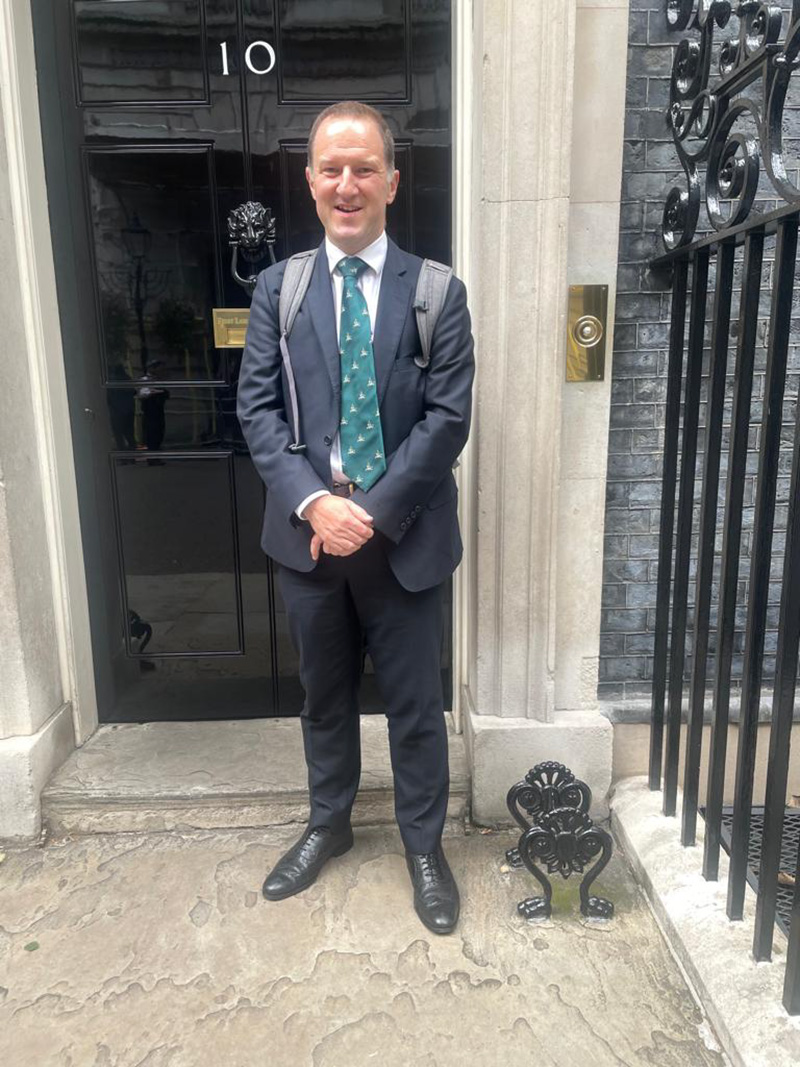
On Wednesday 13 September, BGS President Professor Adam Gordon attended a summit of health leaders at Number 10 Downing Street. Attended by the Prime Minister and the Secretary of State for Health and Social Care, the summit was arranged to discuss NHS winter planning and was accompanied by an announcement of £200 million in additional funding for the NHS over winter and £40 million to support social care services.
The BGS welcomes this focus on winter planning at the highest levels of government. Last winter was catastrophic for older people’s health services and this cannot be allowed to happen again. Systems across the country must be supported to prepare for winter pressures. Making an announcement of additional funds in September will give systems some time to deploy these in useful ways. However, focus on this winter must not take minds off service and workforce development needs in the medium to long term. Population ageing will continue for the next half century and we cannot plan for this one winter at a time.
The BGS is strongly encouraging healthcare system leaders across the country to use this additional funding to focus on the following:
- Front-door frailty services. There is mounting evidence that this type of service, involving early Comprehensive Geriatric Assessment, benefits older patients, while reducing pressures on hospitals. This includes helping older people living with frailty to return home the same day if possible or leave hospital sooner if admitted, especially when linked to transfer of care hubs in the community.
- Domiciliary care. Sufficient capacity in domiciliary care should be prioritised via the £40 million announced for social care, as workforce shortages were a major contributor to discharge delays costing the NHS an estimated £1.7 billion last year.
- Discharge to assess services. It is vital that discharge to assess services have sufficient staff with training and expertise in rehabilitation. This will help ensure that older people are enabled to recover following acute illness – not simply warehoused pending a care package.
- Hospital at home / virtual ward services. These need to be consolidated according to evidence-based care models, in systems where there is a probability that they can be fully implemented in the next two months.
- Enhanced health in care homes. Older people living in care homes should be able to access all pillars of this model, including rehabilitation and high-quality dementia and end-of-life care delivered by a multidisciplinary team.
- Gathering evidence. Some money must be set aside to evaluate and understand which approaches to care are making a difference. We need to retain what works but ensure that we do not waste scarce resources.
Ongoing industrial disputes between the government and healthcare unions have cost an estimated £1 billion so far. It is essential that the government negotiates with the BMA and works to meet their concerns urgently. Otherwise there is a risk that most of the additional resource announced here will be absorbed by the consequences of recurrent strikes.
Professor Adam Gordon, President of the British Geriatrics Society, said:
Last winter saw the worst outcomes for older people with frailty receiving NHS care since records began. We are pleased to see the government taking action, but these funds must be used where they can make the biggest difference. Older people with frailty are most likely to be affected by delays and staff shortages in health and social care.
Specialist care for older people in emergency and acute medical units, a focus on rehabilitation capacity and maximising the availability of social care at home must be prioritised alongside the comprehensively outlined plans for virtual wards.
We call on the government to work to resolve the ongoing dispute with the British Medical Association. Doing so will enable the NHS to focus fully on the challenges of patient care - unleashing the full potential of our health and social care workforce.”